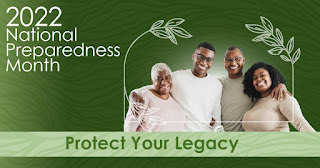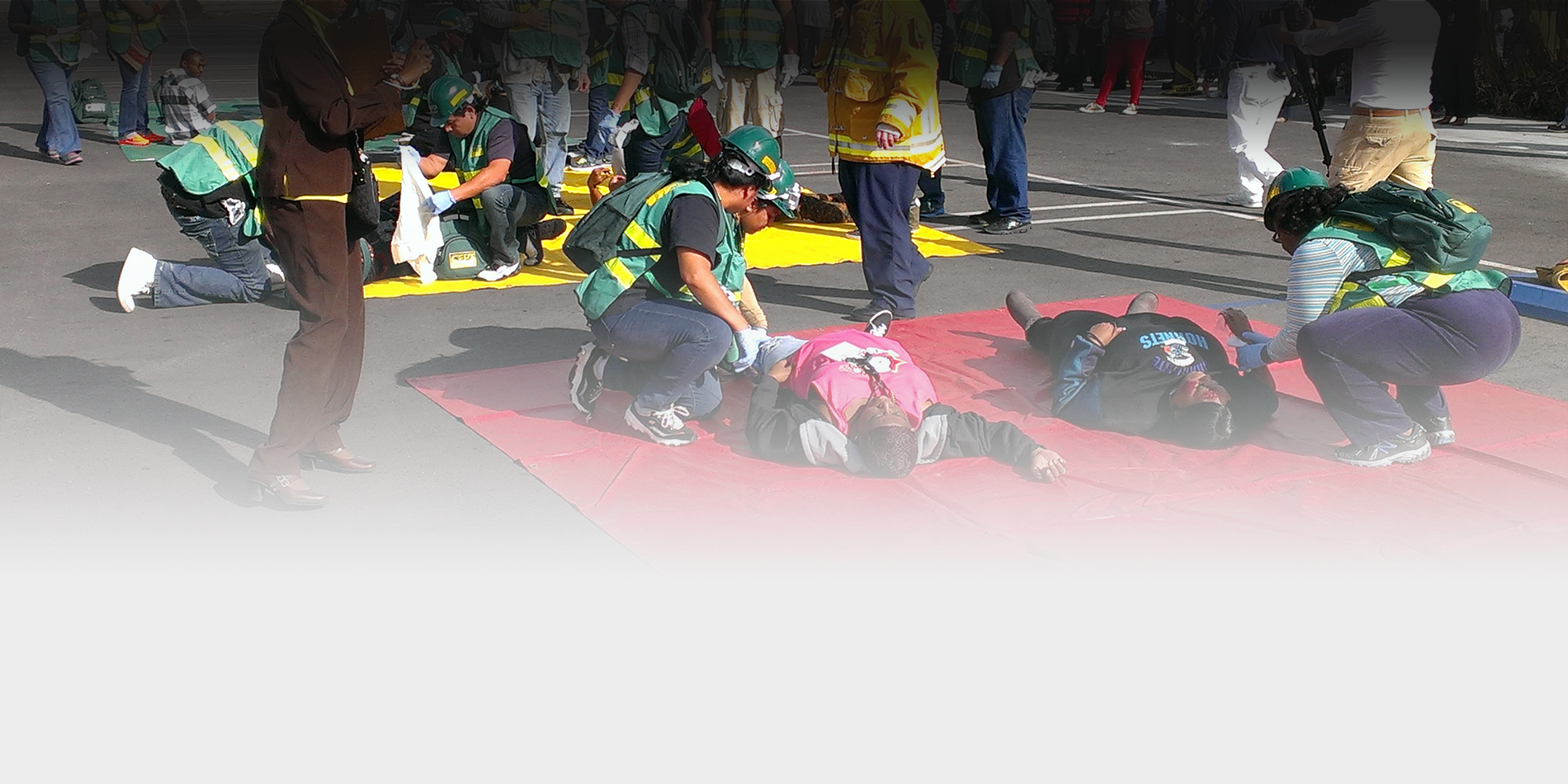
September is National Preparedness Month, which serves as a reminder that we all must take action to prepare, now and throughout the year, for the types of emergencies that could affect us where we live, work, and visit.
The 2022 Theme: A Lasting Legacy
I started my training in emergency preparedness while on my trail to Eagle Scout. Emergency Preparedness is a required merit badge and the Boy Scouts emphasize emergency preparedness among the scouts. I am a retired Paramedic, Special Operations Paramedic and FEMA trained in Emergency Preparedness and Emergency Management. I've responded to many disasters including 9/11 in NYC, hurricanes, blizzards, and mass casualty events and been incident command or staff at many of them.
Here are some of my favorite resources for learning about Emergency Preparedness.
Take time to learn lifesaving skills − such as CPR and first aid, check your insurance policies and coverage for the hazards you may face, such as flood, earthquakes, and tornado's. Make sure to consider the costs associated with disasters and save for an emergency. Also, know how to take practical safety steps like shutting off water and gas.

The devastating hurricanes and wildfires of the last few years reminded the nation of the importance of preparing for disasters. Often, we will be the first ones in our communities to take action after a disaster strikes and before first responders arrive, so it is important to prepare in advance to help yourself and your community.
It is important to consider three scenarios when planning for an emergency: 1) an escape route and meeting point if everyone is in the house; 2) what to do during a school day; and 3) how to handle an emergency during the weekend, when family members might be scattered.
Schools need to be prepared themselves, as well as teach their staff and students how to be prepared. (more info for schools below)
Is your school district prepared for a natural disaster?

FEMA (Federal Emergency Management Agency)
Emergency Management Insitute
The FEMA EMI offers free, online courses for anyone to take. The courses are well done and there are plenty of downloadable materials to help you. If you pass the test at the end, you even get a certificate.
Here are a list of the courses that I think all educators should take: (I've taken these, and more)
IS-36 Multihazard Planning for Childcare
IS-100.c Introduction to the Incident Command System
IS-362.a Multi-Hazard Emergency Planning for Schools
Education Administrators should also be involved in community emergency planning because schools are on the top of the list as emergency shelters and field hospitals and the building administrators know their buildings.
Here is another great resource for schools from the US Dept of Ed - REMS - Readiness and Emergency Management for Schools. This site includes materials, resources and training (including free, on-site training) to help schools start assessing the safety, security, accessibility, and emergency preparedness of their buildings and grounds.
REMS has an Emergency Management Virtual Toolkit to help schools build capacity in Emergency Management and Preparedness.
Ready.Gov also has Materials for Educators - Emergency preparedness curriculum for grades 1-12 that teach kids what to do before, during, and after an emergency while fostering critical 21st-century skills such as problem solving, teamwork, creativity, leadership, and communication.
Youth Emergency Preparedness Curriculum (4 PDFs)
American Medical Response, the EMS agency I worked for as a paramedic, also has some great resources for safety and preparedness, including bike safety, cold weather, hurricane, winter driving and much more.
Ready.gov is the US Government's web site for information and resources on emergency preparedness and response. There are resources for making a plan, an emergency kit, and how to stay informed. Information is included for individuals and businesses.
The Boy Scouts of America, who train all their Scouts and Adults in Emergency Preparedness, has partnered with the Department of Homeland Security to provide resources for the public on getting prepared. The site has planning resources, how to make an emergency kit, and other resources.

Emergency Preparedness is everyone's responsibility. Share these resources with your students, colleagues, and family.
More Emergency Preparedness resources.

















